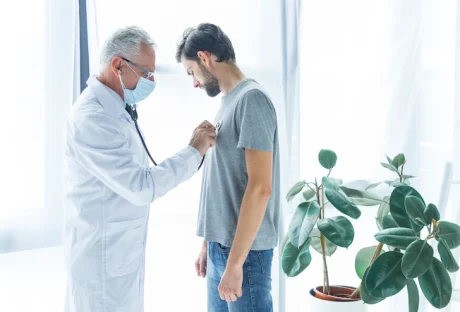In the complex symphony of our body, every organ, every cell, plays a vital role. The gut, located at the core of our body, is an unassuming yet potent conductor of health. Its silent communications often unveil an underexplored health concern – leaky gut syndrome – an issue that may affect many without them realizing it. Now, let’s delve deeper into this critical health matter, shedding light on its mystery and ways to address it.
A Deeper Dive Into Leaky Gut Syndrome
Leaky gut syndrome, scientifically known as increased intestinal permeability, is a mysterious digestive condition. It manifests when the intestinal wall, which normally allows selective passage of nutrients into the bloodstream, becomes compromised. In this state, undesired particles like bacteria, toxins, and undigested food leak into the bloodstream, creating a cascade of potential health issues that often extend beyond the realm of digestion. It’s thus essential to grasp its workings for our well-being.
Interpreting The Whispers: Recognizing The Symptoms Of Leaky Gut
One of the reasons leaky gut syndrome is often overlooked is its extensive range of seemingly unrelated symptoms. Chronic fatigue, digestive issues like bloating, gas, diarrhea, constipation, food sensitivities, joint pain, skin conditions like acne, eczema, rosacea, and even mental health disturbances like anxiety and depression – all of these could be the gentle whispers of a leaky gut. If you notice these symptoms persisting, it’s time to consider consulting a healthcare professional. A comprehensive understanding of these signs can lead us toward better health.
Discovering The Root: Understanding The Causes Of Leaky Gut
Although research continues to explore the exact causes of leaky gut syndrome, several factors are often implicated. These include a poor diet lacking in fiber and essential nutrients, chronic stress that disrupts the body’s equilibrium, toxin overload from environmental pollutants or lifestyle choices, and an imbalance in gut bacteria known as dysbiosis.
The modern lifestyle, characterized by ultra-processed food consumption, lack of physical activity, and high stress, could potentially increase the risk of developing conditions like leaky gut syndrome. This knowledge can help us adopt a more gut-friendly lifestyle.
Translating The Whispers: Diagnostic And Treatment Approaches
Diagnosing leaky gut syndrome can be a challenge due to the broad spectrum of symptoms and the absence of a single, definitive diagnostic test. It is often identified based on symptoms, medical history, and a positive response to treatment. Therefore, a multifaceted approach to diagnosis and treatment is usually the best way forward.
Treatment for leaky gut primarily involves making significant changes to the diet. A well-balanced, anti-inflammatory diet that includes a variety of fiber-rich foods, fermented foods, lean proteins, fruits, vegetables, and omega-3 fatty acids can help restore gut health. Supplements that support gut health also play a crucial role in this process. If you’re unsure about which supplements to take, click here to explore a detailed guide on the best leaky gut supplements. In combination with dietary changes, the right supplement can optimize your path toward a healthy gut.
Fortifying Gut Health With Supplements
When it comes to combating leaky gut syndrome, the right supplements can be powerful allies. They can help rebuild the integrity of the gut lining, restore balance to the gut microbiota, and reduce inflammation. Some of the most effective supplements include probiotics, L-glutamine, collagen peptides, and digestive enzymes, all working in synergy to promote gut health. With their targeted benefits, these supplements can play a key role in supporting the journey toward a healthy gut.
PureHealth Research stands as a notable brand within the health supplements industry. They provide an array of supplements formulated to meet various health needs, including gut health. Incorporating these supplements, based on your specific needs and a healthcare professional’s advice, could be a supportive measure in your strategy against leaky gut syndrome
Expanding Our Understanding Through Research
Scientific research continually sheds new light on our understanding of leaky gut syndrome and its wide-ranging effects on health. Recent studies, such as those published in the journal Gut and Liver in 2020, and the journal Frontiers in Immunology in 2017, delve into the complex mechanisms underlying leaky gut syndrome. They highlight the importance of gut health for overall physical and mental well-being. This expanding body of research underscores the importance of staying informed and utilizing this knowledge for our benefit.
The Larger Picture: The Role Of Gut Health In Overall Well-Being
Maintaining a healthy gut extends beyond just alleviating digestive issues. Emerging research indicates a profound connection between gut health and various other systems in our bodies, including our immune system, endocrine (hormonal) system, and even our neurological health. Therefore, by attending to the whispers of a leaky gut, we may also positively impact these other aspects of our health. Recognizing the interconnected nature of our body systems can guide us toward more holistic health practices.
The Path Forward: Heeding The Whispers Of Your Gut
The silent whispers of a leaky gut need not be a cause for panic, but a signal for attention and action. By tuning in to these subtle signals, identifying potential triggers, and taking proactive steps towards improved gut health, you can enhance your overall well-being and vitality.
A journey towards better health often starts by paying heed to these whispers, and taking preventative measures before they escalate into louder cries for help. So, let’s not ignore these whispers, instead, let’s interpret them as calls to action, steering us towards a healthier future.
Read Also:























